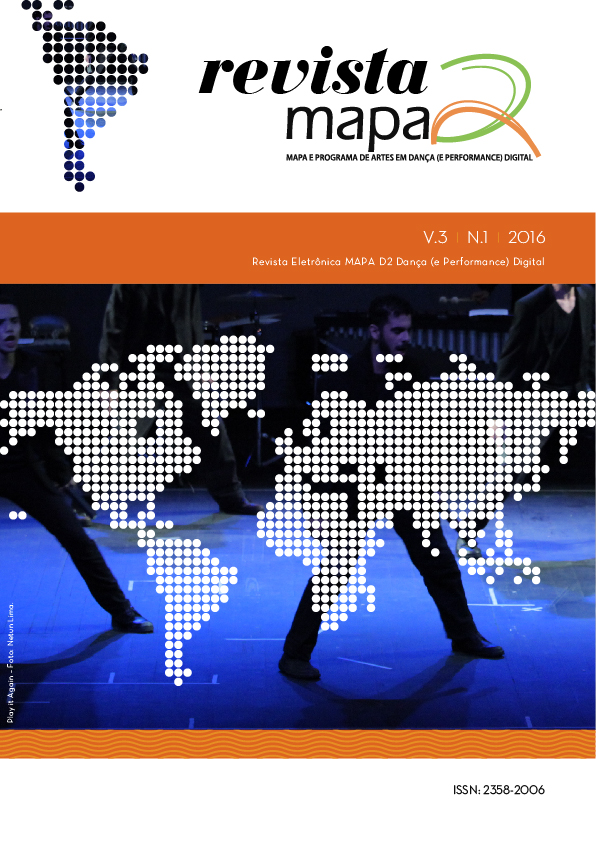The Adaptability of Language-Motor Connections in Dance and Acting: A Coordination Dynamics Experiment
Palavras-chave:
dance, theatre, language-motor coordination, cognitive dynamicsResumo
This study examined the strength of language-motor connections in dance and acting through a dynamical coordination experiment. It was designed to achieve a higher degree of precision and discipline-specificity than provided by past applications of action-based language theory to the fields of dance psychology and cognitive performance studies. The study revealed that language-motor connections are dependent on training and artistic discipline. It also found that while these connections attract behavior, task-oriented attempts to counter this effect produce implicit adaptation or creation of new language-motor connections. These discoveries are considered in terms of their utility and potential application to gesture-based memorization, choreographic reflection, and improvisational feed-back systems in dance and theatre.

